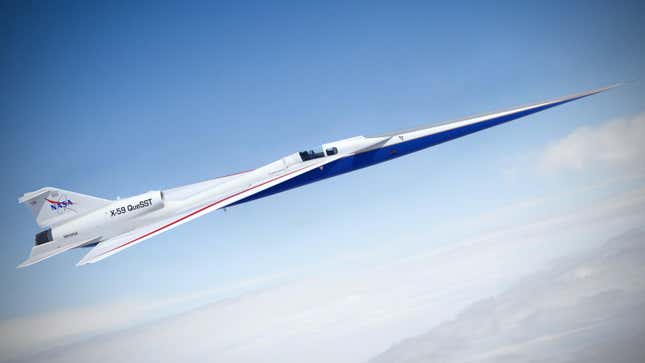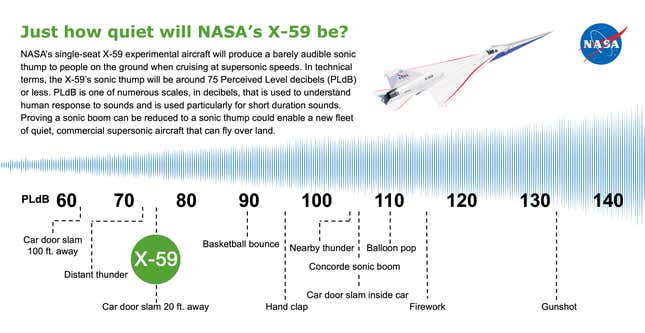
For almost three decades, the slice of humanity who could afford it had access to supersonic air travel. The Concorde regularly traversed the North Atlantic in three and a half hours on routes operated by British Airways and Air France. However, supersonic passenger flights never went further west in the United States than international flights on the East Coast. Government restrictions prevented ear drums and windows from being shattered by sonic booms from sea to shining sea.
The X-59 QueSST (Quiet SuperSonic Technology), commissioned by NASA and developed in cooperation with Lockheed Martin, is scheduled to make its first flight later this year. The supersonic test plane is the centerpiece of NASA’s Low Boom Flight Demonstrator program. The program’s goals are to develop the technology to minimize sonic booms and to re-evaluate the decades-old restrictions on supersonic flight over populated areas.
Those involved in the project believe the X-59 should reach a maximum speed of Mach 1.5 (990 mph) with a General Electric F414 turbofan engine generating 22,000 pounds-force of thrust. Also, the dramatic boom-reducing shape of the X-59’s nose means that the pilot won’t be able to see out of the window. The plane will use NASA’s eXternal Vision System (XVS) to allow forward vision with the use of a high-definition display along with a suite of sensors and cameras.

Once the X-59 begins flying, the experimental plane will soar over a select number of communities in the United States to measure the impact of the stifled booms. Dave Richwine, the project’s deputy manager for technology, told Discover, “You’re going to hear something like a heartbeat. Or you may not even hear it at all if you’re in a loud environment like the city.” The ultimate goal is that the X-59 opens the skies for passenger flights over the country by a new generation of supersonic airlines like the Boom Overture.